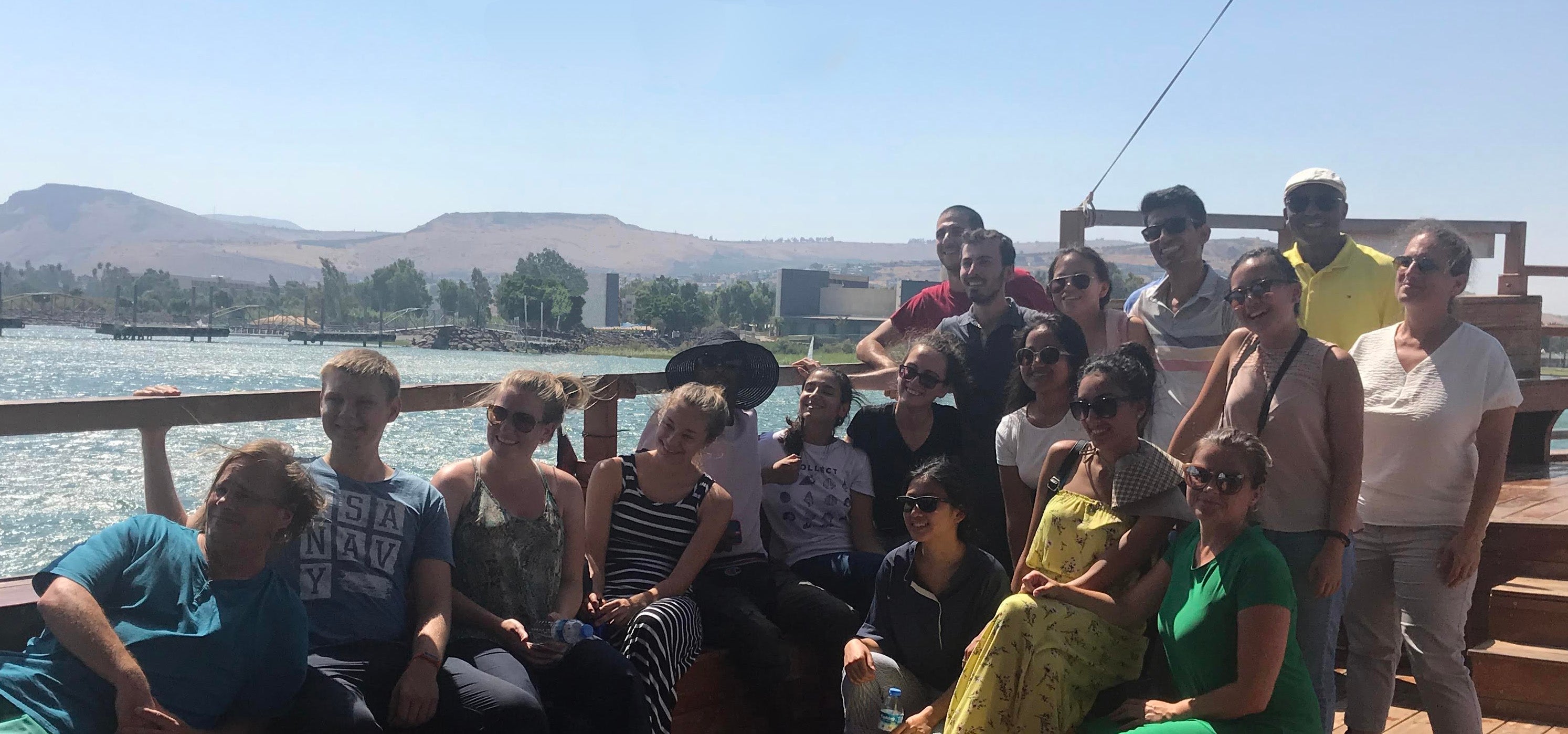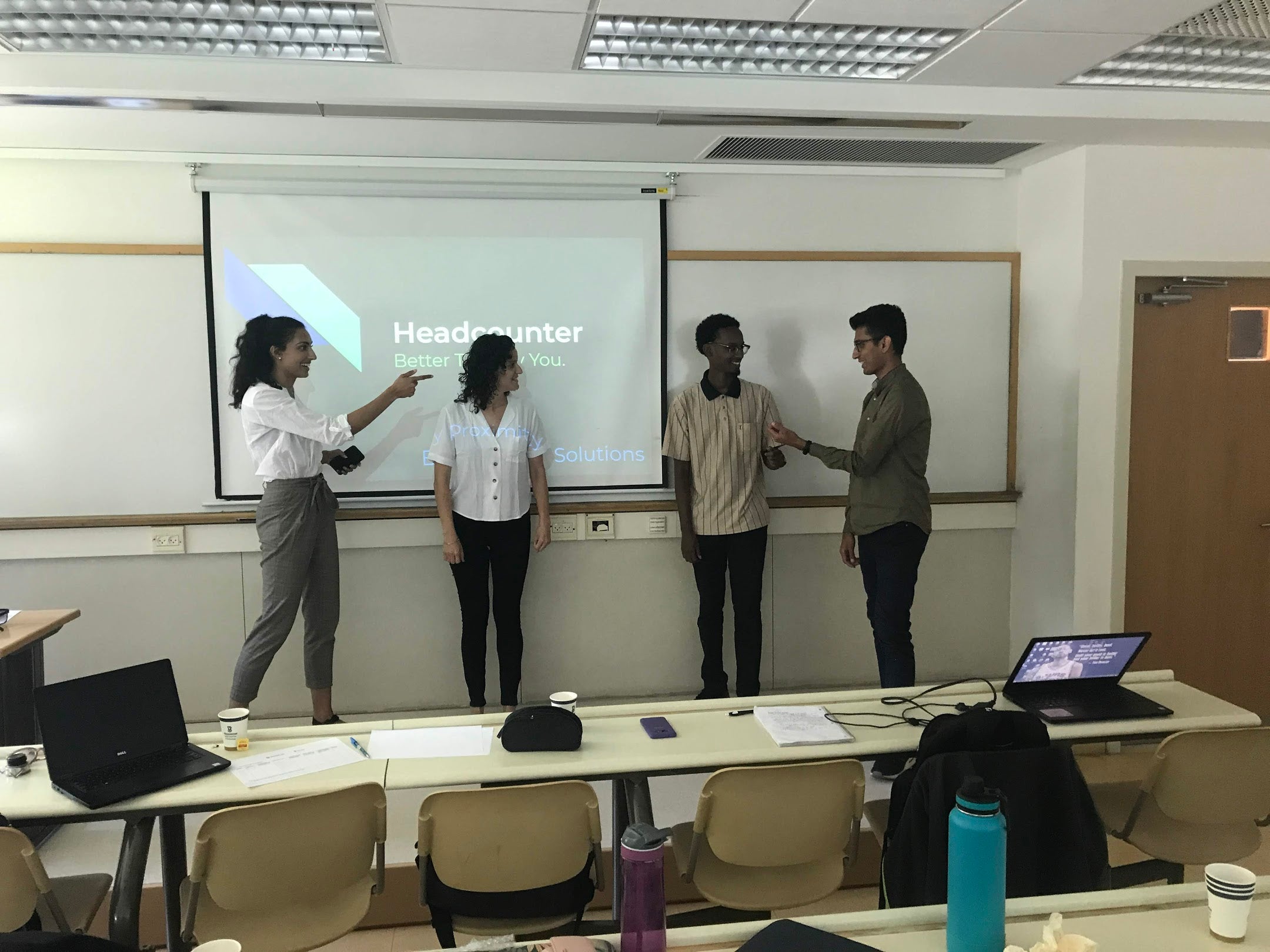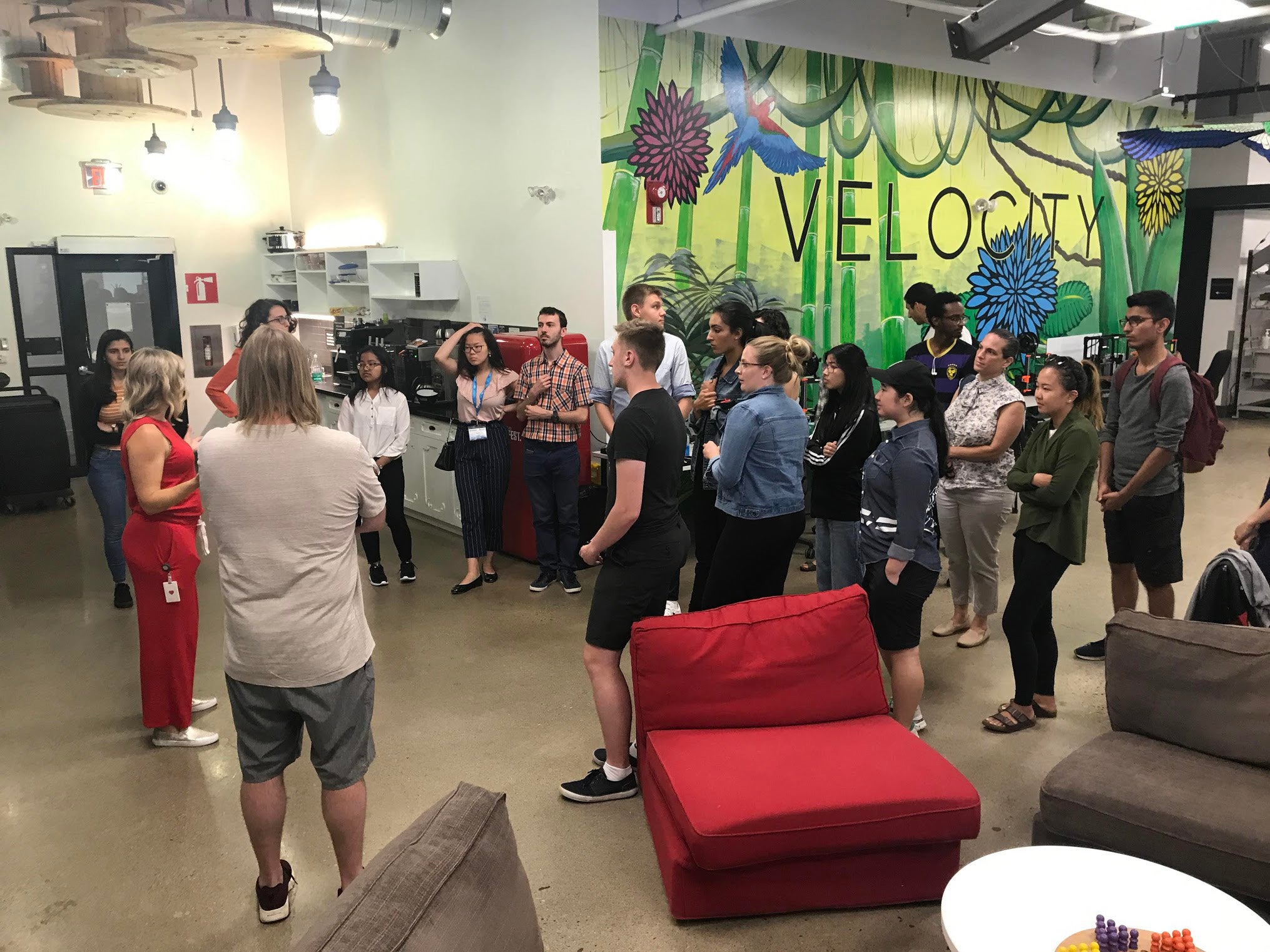
Walking the streets of Jerusalem, swimming in the Dead Sea, and visiting the Holocaust memorial museum Yad Vashem are not the typical types of experiences that come to mind when imagining an undergraduate business class. Yet these are some of the highlights of the new SCI 230 class offered through the Faculty of Science.
This class offered University of Waterloo students a unique opportunity to experience global culture and innovation during an international experiential learning exchange program with the Technion – Israel Institute of Technology (Technion), in Israel. This collaboration was made possible by the Gerald Schwartz and Heather Reisman Foundation. During a recent visit to Waterloo campus, Lori Shapiro, the CEO of this foundation explained the benefits of this exchange: “especially in technology and business, there is a lot that Canadians can learn in Israel because of the way they’ve developed their tech culture there, and their economy there.” Waterloo and Technion are both considered to be among the world’s top innovation universities, so this partnership offers students the opportunity to embrace the cutting-edge mindsets of each university.
The SCI 230 exchange class combined 14 Waterloo science students with six students from Technion for an intensive 18-day course this past August. Students traveled together in Canada and Israel, visiting successful start-up companies in each technological region, including Waterloo’s Velocity Garage Incubator.
I thought that visiting all the different start-ups that turned into something big was very inspirational. When you left, your mind started churning… ‘what can I do to get to that point?’
Students experienced the two unique cultures and styles of learning on a global stage, attending classes and touring attractions in both Israel and Canada. “The ultimate goal is to really expose Canadian students to the Israeli culture,” says Professor Okey Igboeli. Students learned about the global focus of Israeli businesses, a common theme among start-ups in the small technologically driven country. The program also fostered friendship and collaboration between students of the two universities, and facilitated the sharing of new ideas.
Pairing Waterloo students with Israeli students is one of the biggest benefits of this exchange course. The cultural differences between Israeli and Canadian students provided opportunities for exchanging viewpoints and learning new perspectives on scientific entrepreneurial problems. “Working with students from a different background and culture really helped me gain a global perspective into working with others, and in the future, conducting business within a global context,” said student Evelyn Liu.

“The mixture of being there in Israel, seeing things for ourselves, and then working with the Technion students was huge!” said Igboeli, referring to the partnership’s benefits for UWaterloo students. “They’ve stayed in touch and created a strong network of bonding, which we hope will lead to even bigger things for them, and for the countries and schools involved.”
This course will be offered again in the spring 2020 term, with the tentative travel dates of August 16 to September 7, 2020. For more information visit the SCI 230 course webpage, or contact Professor Okey Igboeli.
